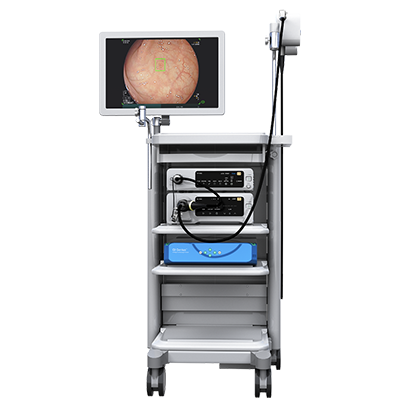Ethical AI: What it is and why it matters to healthcare
Medtronic releases the AI Compass to commit to the safe and ethical use of AI
Artificial intelligence (AI) is everywhere — from our smartphones to the social media platforms we visit on a regular basis. The technology is also widely used in healthcare and is changing the way clinicians diagnose, treat, and monitor patients.
Even though AI offers amazing opportunities to address the most critical challenges we face in healthcare, like all technologies it also requires safe and responsible use, especially given ethical concerns like privacy and bias.
To learn more about ethical AI, we talked to some of the top experts at Medtronic who are tackling these important questions and others associated with AI-enabled medical devices.
Why is AI used in healthcare?
Artificial intelligence is a powerful tool used to increase the speed, efficiency, and effectiveness of global healthcare systems. By analyzing large amounts of data in real-time, AI can help improve clinical and nonclinical decision making, provide for more personalized therapies, and reduce variability in patient care.
Why is it important to use AI ethically in the delivery of healthcare technologies?
Anytime we develop a healthcare technology, we go to great lengths to make sure they are safe and effective for patients and providers. Our AI-enabled healthcare technology is no different. For example, one critical step in the process is ensuring that AI doesn’t further amplify biases that already exist within healthcare today so that the application of AI meaningfully improves the health outcomes for all patients.
How is Medtronic using AI ethically?
As a leader in the healthcare technology industry, we are deeply committed to the ethical and responsible development of AI-enabled devices.
That commitment starts with keeping a laser focus on patient outcomes. If we think a specific technology won’t meaningfully improve patient health outcomes or the delivery of care, then that device won’t be developed .

“It goes back to our Mission to alleviate pain, restore health, and extend life,” said Tarek Haddad, director of machine learning and statistics at Medtronic. “Using AI ethically and responsibly is just an extension of that Mission. Everyone knows that we create great products and therapies, and our ethics are at the core of the development process.
How can companies avoid or mitigate embedding bias within AI?
In short, it’s all about good data collection.
“The responsibility of removing bias from our data belongs to every employee at Medtronic,” Haddad said. “For example, in clinical trials, our data should come from diverse patient population sets. If we develop products using only data from the U.S., they may not work well for our patients outside the U.S.”
What is the Medtronic AI Compass?

The AI Compass is a set of seven guiding principles for responsible use of AI in product development at Medtronic. Those principles address issues like beneficial use, transparency, fairness and non-discrimination, and oversight.
It was written by a team of Medtronic experts who work in regulatory, research and development, quality, government affairs, IT, legal, and communications.
The Compass was recently developed and released to the public to demonstrate the company’s commitment to ethical AI use and to hold itself accountable .
“We see the AI Compass as a tool to communicate with our patients and physicians, about our approach and help build trust,” said Cassie Scherer, Senior Director of U.S. Regulatory and Global Digital Health Policy at Medtronic. “Within Medtronic we know how critical our Mission is in guiding our product development. The AI Compass reinforces those commitments for the future of our AI-enabled technology.”
To learn more about the AI Compass, please follow this link.
Related content



